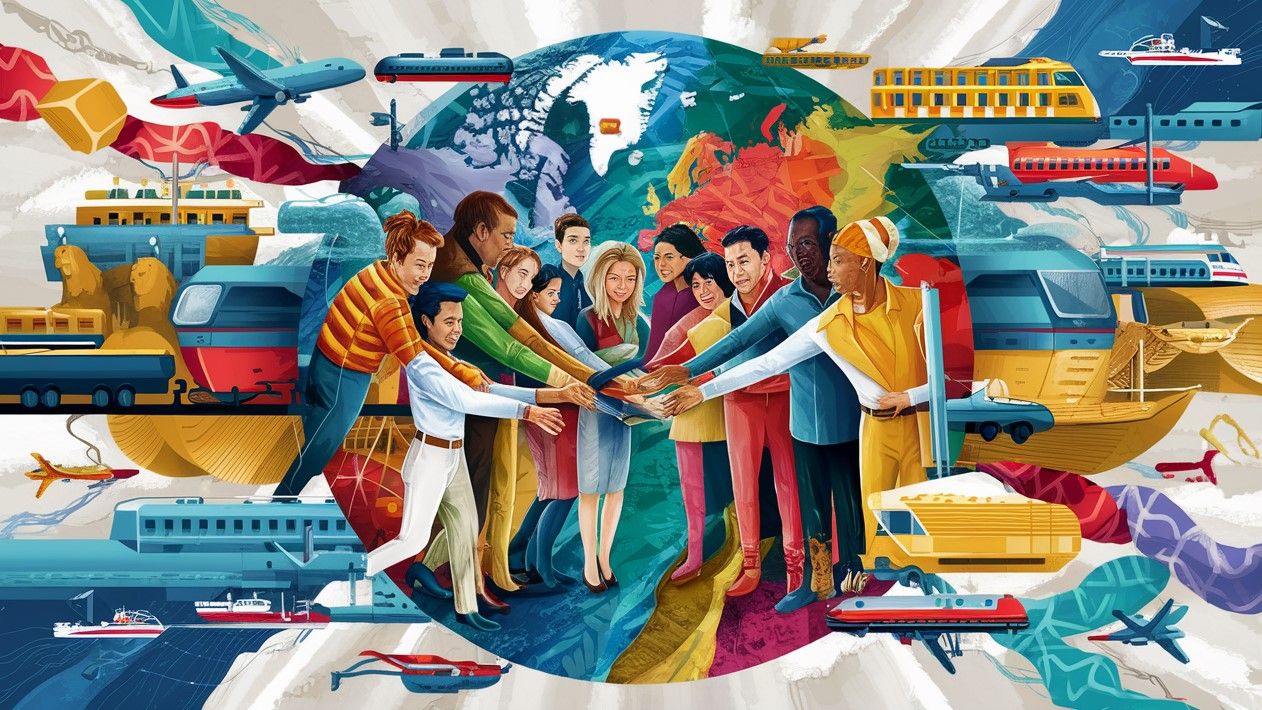Globalization and Examples

Contents
Globalization is a pervasive and inextricably linked phenomenon that encompasses various aspects of economic, social, and cultural interdependence, facilitated by advances in technology, transportation, and communication, which have intensified interconnectedness and interdependence among nations across the globe. The advent of globalization has been a gradual process, with roots dating back to the 15th century, and has been shaped by various factors, including neoliberal ideologies, deregulation, and the emergence of new economic powers.
The interconnectedness of the world’s economies has led to the creation of a complex web of trade relationships, with countries relying on each other for goods and services. This interdependence has fostered a new era of cooperation, with countries forming bilateral and multilateral agreements to facilitate trade and investment. For example, the creation of free trade agreements has reduced tariffs and trade barriers, increasing trade and investment between countries.
However, globalization has also been criticized for its negative effects, including the depletion of natural resources, loss of biodiversity, and the exploitation of labour. The decimation of indigenous communities and the degradation of the environment are worrisome consequences of globalization. Critics argue that globalization has led to a zero-sum game, where some countries benefit at the expense of others. The rampant pursuit of profit has led to a situation where the benefits of globalization are not shared equally, with some individuals and corporations reaping the rewards while others are left behind.
To mitigate the negative effects of globalization, firms and governments must adopt a holistic approach, considering the interdependence of economic, social, and environmental factors. This includes implementing Corporate Social Responsibility (CSR) practices, promoting sustainable development, and fostering a culture of transparency and compliance. For instance, companies can adopt a glocal approach, adapting their products and services to local markets while maintaining a global brand identity.
The proliferation of globalization has also led to the emergence of new business models, such as the solopreneur, and the growth of international trade. However, this has also created new challenges, including the need to navigate complex regulatory environments and to manage the risks associated with global supply chains. Firms must be able to adapt to changing circumstances, leveraging their ability to pivot and respond to new opportunities and challenges.
A PESTEL analysis can help firms understand the macro-environmental factors that affect their operations, while a SWOT analysis can identify their strengths, weaknesses, opportunities, and threats. By using tools like the Persona tool, firms can better understand their customers and develop targeted marketing strategies. The use of a Maturity Model can also help firms assess their level of globalization and identify areas for improvement.
The effects of globalization are widespread, with both positive and negative impacts on economies, societies, and cultures. While some argue that globalization has led to increased economic growth and prosperity, others argue that it has exacerbated income inequality and cultural homogenization. The debate around globalization is complex and multifaceted, with various stakeholders holding different views on its impact.
In conclusion, globalization is a complex and multifaceted phenomenon that has both positive and negative effects. Understanding its various dimensions is crucial for fostering a more equitable and sustainable global economy. As we move forward, it’s essential to adopt a holistic approach, considering the interdependence of economic, social, and environmental factors, and promoting sustainable development, transparency, and compliance. By doing so, we can mitigate the negative effects of globalization and create a more prosperous and equitable world for all.
The 1870, 18th, 1914, 19th, 1944, 1971, 1983, and 1989-90 periods are significant milestones in the history of globalization, marking important events and trends that have shaped the global economy. The big-box retailer is a typified example of a firm that has leveraged globalization to expand its operations and increase its market share. The flagship product of such firms is often a potent symbol of their brand identity and is used to promote their products and services globally.
The governance of globalization is a complex issue, with various stakeholders and interests involved. The decentralization of the nation-state has led to a shift in power dynamics, with new actors emerging on the global stage. The climate accords and other international agreements are crucial in promoting cooperation and addressing the global challenges posed by globalization. The need for a holistic approach to globalization necessitates considering the interdependence of economic, social, and environmental factors and promoting sustainable development.
Ultimately, the future of globalization will depend on our ability to adapt to changing circumstances, to navigate the complexities of global governance, and to promote a more equitable and sustainable global economy. By working together and adopting a holistic approach, we can create a more prosperous and equitable world for all. The various entities involved in globalization, including firms, governments, and civil society organizations, must work together to promote a more sustainable and equitable global economy. The use of upfront capital, logistics, and production runs can help firms to optimize their operations and improve their competitiveness in the global market.
The transnational strategy adopted by many firms has enabled them to operate across borders and to take advantage of new opportunities and markets. However, this has also created new challenges, including the need to manage complex global supply chains and to navigate different regulatory environments. The need for firms to be compliant with various regulations and laws is crucial in maintaining their reputation and avoiding costly penalties.
In the end, the success of globalization will depend on our ability to balance the benefits of economic growth and prosperity with the need to protect the environment and promote social justice. By adopting a holistic approach and promoting sustainable development, we can create a more equitable and sustainable global economy that benefits all. The various stakeholders involved in globalization must work together to promote a more sustainable and equitable global economy, and to address the global challenges posed by globalization.











